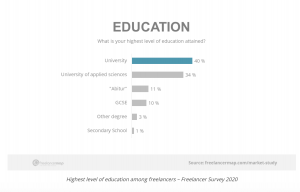Google’s New Ranking Algorithm Wants Content Written For Humans
Google will initiate a site-wide algorithm update next week called the “helpful content update,” intended to devalue content written for search engines. In other words, the algorithm looks for and prefers content written for humans.
It will take Google two weeks to roll out the change.
The update, which aims to help improve SEO techniques, introduces a site-wide signal used to rank web pages — and is is one among many.
Google’s systems automatically identify content that seems to have little value, low-added value or is otherwise not particularly helpful to people doing searches.
Sites determined to have relatively high amounts of unhelpful content are less likely to perform well in search. This is why Google says removing unhelpful content could help other content rank higher in search results.
It could take months for sites identified by this update to recover. Google wrote in a post that “classifier for this update runs continuously, allowing it to monitor newly-launched sites and existing ones. As it determines that the unhelpful content has not returned in the long-term, the classification will no longer apply.”
This ranking update will help ensure that unoriginal, low-quality content does not rank highly in search results
Google says that early tests suggest it will “especially improve results related to online education, as well as arts and entertainment, shopping and tech-related content.”
This update, in other words, should give those searching for information on Google Search more unique and authentic information.
The algorithm also focuses on more helpful product reviews, after last year launching in search results a series of updates to show more helpful, in-depth reviews based on firsthand expertise.
What is considered helpful? To focus on people first. Google says it is important to keep certain things in mind when creating content.
Have an existing or intended audience in mind. Ensure the site has a primary focus, and content clearly demonstrates first-hand expertise and a depth of knowledge. Try to teach readers something, and have them know they have learned enough about the topic to make an educated decision.
Avoid taking a search engine-first approach by producing content on different topics in hopes that some of it might perform well in search results, using extensive automation to produce content on many topics, or summarize what others have said without adding additional content.
It is also suggested to avoid writing content to a specific word count, to leave readers feeling as if they need to do another search to find the information.
There are many other suggestions that address what to do and not to do here in a post by Google.
(19)
Report Post






